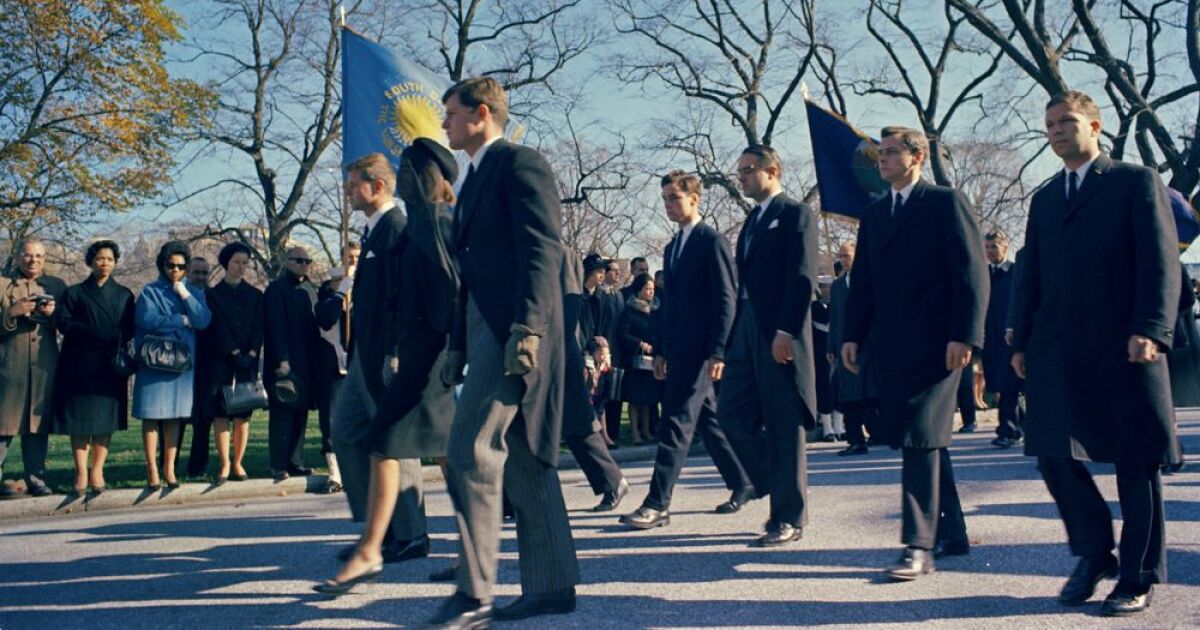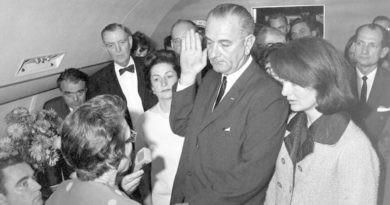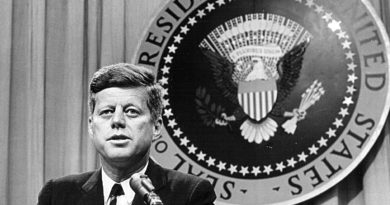Secret Service Agent Paul Landis shares his memories of the JFK assassination for the first time

Paris Alston: This is GBH’s Morning Edition. Sixty years ago today, President John F. Kennedy was assassinated.
[Previously recorded]: Here is a bulletin from CBS News: In Dallas, Texas, three shots were fired at President Kennedy’s motorcade in downtown Dallas. The first reports say that President Kennedy has been seriously injured.
Alston: Paul Landis, who was a Secret Service agent for First Lady Jacqueline Kennedy at the time, was there.
Paul Landis: We drove through downtown Dallas and the crowds were overwhelming. Things were bright and cheery, and Texans were welcoming the Kennedys with open arms.
Alston: Soon after, he heard a loud bang.
Landis: Two or three seconds later, there was a second shot and it came from the same area. And I didn’t see any reaction in the president’s limo that point, I thought that shot had missed.
Alston: Then there was a third shot, which Landis says was clearly fatal as it hit the president in the head. For years, Kennedy’s death would spark speculation of just what happened that day. Now, at 88 years old, Landis is sharing his view in a new book, ‘The Final Witness: A Kennedy Secret Service Agent Breaks His Silence After 60 Years.’ It shines new light on the official findings of the investigation into the assassination and for many raises questions because Landis reveals finding a fourth bullet.
Landis: As soon as Mrs. Kennedy stood up, a noticed a fully intact bullet in on the back of the rear seat where she had been sitting. And there was no damage to it.
Alston: As the title of your book implies, this is the first time that you are speaking publicly about what you did on that day with that bullet you found. What has motivated you to share this now?
Landis: It took quite a while for me to get over the trauma and the post-traumatic stress. I reached the point — I had never read the Warren Commission report, and I purposely did not read any of the conspiracy theories and reports that were out there. It was just, I had figured, I was there. I knew what happened. I saw it, I didn’t need to read anything. And then I came to — a police chief in Shaker Heights, Ohio, gave me a copy of Josiah Thompson’s ‘Six Seconds in Dallas.’ It sat on my nightstand for three months before I could open it. I finally figured it was time to let go, call them, and read something. And I came to a point in the book when I saw there was a picture of what they would call, it was the pristine bullet or the magic bullet. And they had claimed that it came off of Governor [John] Connally’s gurney. And I recognized it as the bullet that I had placed on the side of Kennedy’s gurney, it was like, wow, this is wrong. You know, what do I do? Who do I call and talk about it? There weren’t many people I would trust to call.
Alston: Who could you call? Who could you tell about this, right? I mean, did you keep a journal? Did you write about this in all the time that you’ve been processing what happened? Did you ever tell anyone privately?
Landis: I called Clint Hill and told him because I trusted him.
Alston: Clint Hill, just for clarification, is the other Secret Service member that was involved here.
Landis: Correct.
Alston: And how soon after the assassination did you talk to him?
Landis: Well, that was 2014. So I just kept all my feelings and thoughts to myself up to then.
Alston: What you share challenges the findings of the Warren Commission. I know you said you never read it, but all these years later, we know that investigation found that there were only three shots and one shooter in the assassination. And, of course, your account of a fourth bullet suggests that is inaccurate. Now, the commission did not interview you as part of its investigation. But how do you think the nation’s recollection of this event would be different if they had?
Landis: First of all, I haven’t changed my opinion on whether there, as to there being a single shooter and three shots. That remains the same and I think the Warren Commission got that right. But if I had been interviewed, which I fully expected to be, and I was worried about it because I knew I would break down, and that wasn’t the kind of image I wanted to represent to the Secret Service — I think there would not have been so many conspiracy theories and all the confusion and everything around the assassination. Clint Hill was the only the agent they really interviewed who had been in a follow-up car, and Roy Kellerman, who was in the limousine. Other than that, none of the eyewitnesses were interviewed. Who knows what, you know, what would have been settled upon or agreed upon at the time.
Alston: And had you been interviewed, you would have been forthcoming about what you did with that fourth bullet you found.
Landis: Definitely. The trauma and everything at the time, I had this constant loop going through my head.
Alston: But it does sound like you being able to get this out in the open is a sense of relief. Would you say that’s true?
Landis: Oh, very true. I thought that I was over everything, and that all those events wouldn’t bother me. But when I when I wrote my book and I came to what I was calling the end, but I knew it really wasn’t the end of the story, and I contemplated. Do I write the end or not? And it felt as if I had to do about. And the very second after I typed the end, all of a sudden tears started streaming down my cheeks, and I sat staring at my computer and cried.
Alston: What do you want the public to learn from what is shared?
Landis: I hope the public learns the truth. There’s so much that we don’t know. And I know the situation the government must be at in not wanting to release this, the information that they’ve been withholding. But I think we need to know the truth. Let’s get it out, get it over with, and move on.


